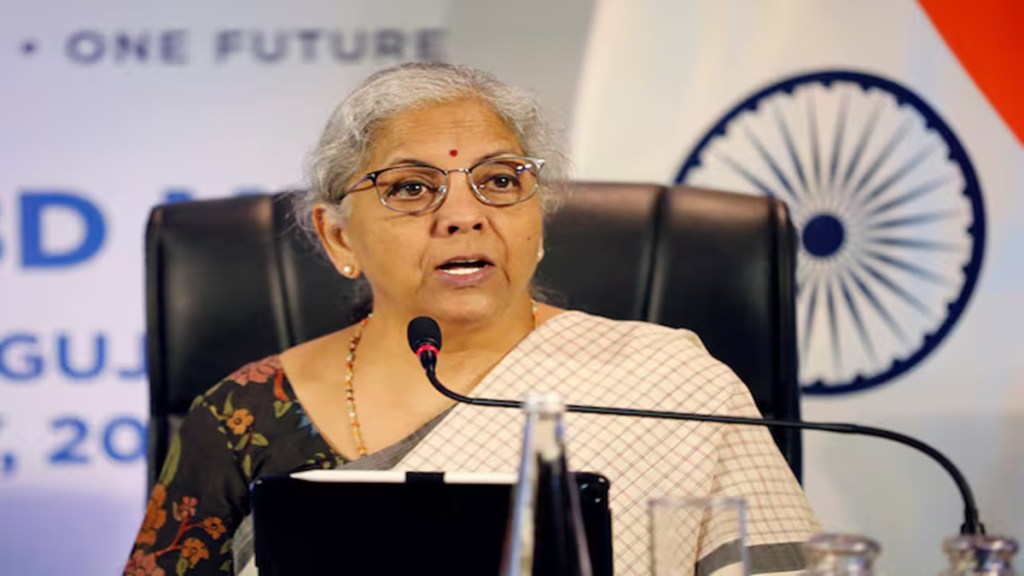The new Income Tax Bill which seeks to simplify the over-six-decades-old principal legislation on direct laws, will be taken up for discussion in the monsoon session of Parliament, finance minister Nirmala Sitharaman said on Tuesday.
This indicates that the Bill may be pushed for consideration and passing in the next session, which typically commences in July. Introduced in the House on February 13, the Bill is currently being vetted by the select committee.
Meanwhile, the Lok Sabha on Tuesday approved the Finance Bill 2025 along with amendments, including one that abolishes a 6% equalisation levy on online advertisements.
Last week, the Central Board of Direct Taxes (CBDT) asked stakeholders to continue submitting their suggestions on the Bill. The board had said an effort was underway to collect inputs and work on simplification of the associated income tax rules and forms.
The I-T Bill is noted for its language that is “easier to understand” and re-grouping of some of the sections for easy reference. However, no change has been proposed in tax rates or key tax provisions like residency rules, capital gains taxation, general anti-avoidance rules, transfer pricing, TDS/TCS rates etc.
The proposed law seeks to replaces the term “previous year” as mentioned in the extant law with “tax year” that is aligned with the financial year (April-March). The concept of assessment year will be done away with. Further, all sections related to tax deducted at source (TDS) have been combined under a single clause, and retained a Charter that seeks to buttress taxpayers’ rights.
The select committee has invited the suggestions from stakeholders in the following categories: simplification of language, reduction of litigation, reduction of compliance burden, and identification of redundant/obsolete rules and forms. Experts say that the committee’s effort to engage with stakeholders will help identify practical challenges and ensure that the rules effectively serve their purpose. Well-structured rules and forms should simplify compliance while staying aligned with legislative intent, they say.
While seeking the House nod, finance minister Nirmala Sitharaman said the Finance Bill has offered “unprecedented tax relief” to honour taxpayers while rationalising customs tariffs to boost manufacturing, promote exports, and provide relief to the common man.
With the passage of the Finance Bill 2025, the Lok Sabha completed its part of the Budgetary approval process. The Upper House, Rajya Sabha, will now consider the Bill.
Sitharaman said the new simplified Income Tax Bill will be taken up for discussion in the monsoon session of Parliament. The new income tax bill, which was introduced in the House on February 13, is currently being vetted by the Select Committee.
“We will take it (new income tax bill) up in the monsoon session,” Sitharaman said. The monsoon session of Parliament usually commences in July.
Equalisation levy on online advertisements to be abolished to address uncertainty in international economic conditions, the minister said.
The withdrawal of the 6% “equalisation levy” imposed on online advertisements in June 2016, is seen as ceding some autonomous ground on taxation of the digital economy.
The Centre sharply raised the income tax exemption limit to Rs 12 lakh from Rs 7 lakh in the new tax regime, which the government said would leave around Rs 1 lakh crore cash in the hands of taxpayers. It also lowered its fiscal deficit estimate for 2024-25 to 4.8% of GDP from 4.9% and is projected to come down to 4.4% in 2025-26.
Addressing apprehensions about the potential withdrawal of the income tax rebate in future years if collections slow down, the minister said “Even during Covid, we did not raise taxes. Where we’ve come up with a rebate to benefit the middle class, an element of suspicion is being brought in saying ‘what if’.”
Talking about customs tariff rationalisation, she said these changes would support manufacturing, promote exports and provide relief to the common man.
The government announced in the Budget to add 35 additional capital goods for EV battery manufacturing, and 28 additional capital goods for mobile phone battery manufacturing to the list of exempted capital goods to boost domestic manufacturing. The Budget also proposed to fully exempt Basic Customs Duty (BCD) on cobalt powder and waste, the scrap of lithium-ion battery, Lead, Zinc and 12 more critical minerals. This is in addition to the 25 critical minerals fully exempted from BCD in the July 2024 Budget. This will ensure supply to cutting edge manufacturing technology companies in India.

